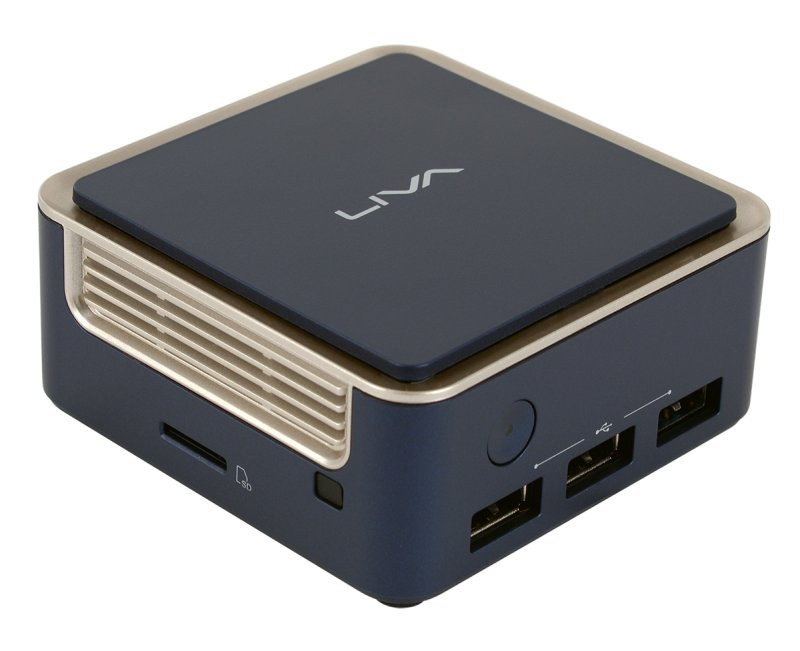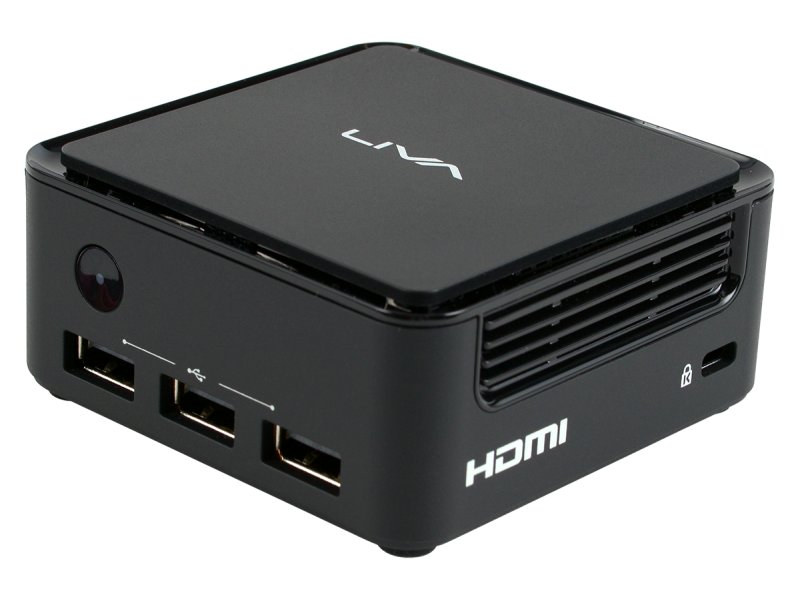ECS started the LIVA Q product line of tiny mini PCs in 2017, and so far all were based on low power, affordable Intel processors including last year’s LIVA Q1L/Q1D mini PCs powered by Intel Celeron or Pentium Apollo Lake processors.
But at CES 2021, ECS will showcase its first Arm-based LIVA mini PCs with LIVA Q1A and Q1A Plus respectively powered by Rockchip RK3288 quad-core Cortex-A17 SoC and RK3399 hexa-core Cortex-A72/A53 processor running Linux or Android.

- SoC
- LIVA Q1A – Rockchip RK3288 quad-core Cortex-A17 processor @ up to 1.6 GHz with Mali-T764 GPU
- LIVA Q1A Plus – Rockchip RK3399 hexa-core processor with 2x Cortex-A72 cores @ up to 1.8 GHz, 4x Cortex-A53 cores. and a Mali-T860MP4 GPU
- System Memory – 2GB LPDDR3-1600
- Storage – 32GB (default) or 64GB eMMC flash, 1x MicroSD slot
- Video and audio output
- Both models – 1x HDMI 2.0 up to 4Kp60 with CEC support (Please note RK3288 HDMI compatibility issues with some older 4K TVs)
- LIVA Q1A Plus only – 1x DisplayPort 1.2 up to 4Kp60
- Connectivity
- Gigabit Ethernet (RJ45)
- 802.11b/g/n WiFi 4 and Bluetooth 4.0
- USB
- LIVA Q1A – 3x USB 2.0 ports, 1x Micro USB port
- LIVA Q1A Plus – 1x USB 3.2 Gen 1 port, 2x USB 2.0 ports
- Misc – Power button, Kensington lock
- Power Supply – 12V DC/2A via power barrel jack
- Dimensions – 74 x 74 x 34.6 mm
Sadly we don’t have any photos with the Ethernet and video ports, but they should be on the rear panel. ECS will offer the fanless mini PCs with either Ubuntu 18.04 or Android 8.1 with digital signage in mind.
Pricing and availability information is not known at this stage, and the company has yet to publish a product page.
Via Liliputing

Jean-Luc started CNX Software in 2010 as a part-time endeavor, before quitting his job as a software engineering manager, and starting to write daily news, and reviews full time later in 2011.
Support CNX Software! Donate via cryptocurrencies, become a Patron on Patreon, or purchase goods on Amazon or Aliexpress





